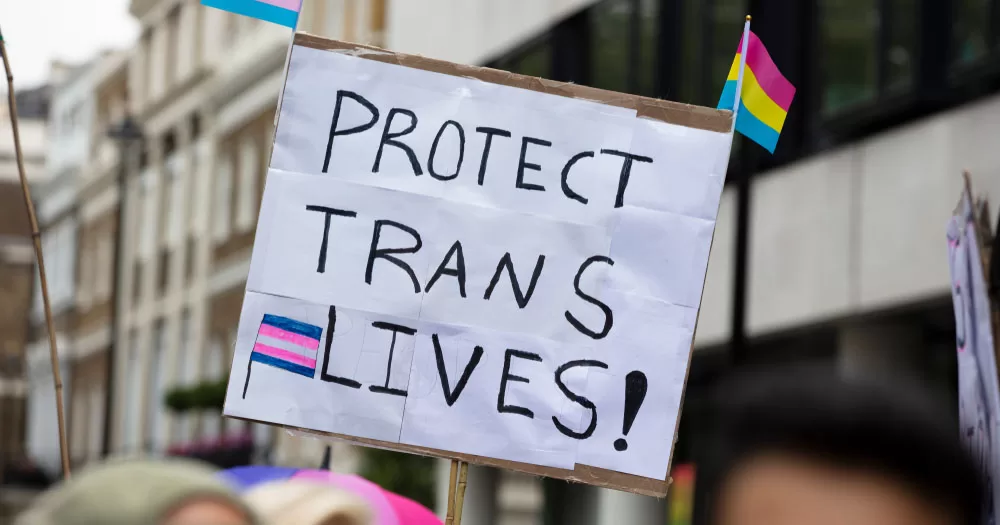Following a report last week by BBC News that disclosed leaked emails from senior executives at the Gender Identity Development Service (GIDS) raising serious concerns over the mismanagement of the closure of the Tavistock Gender Clinic in the UK, several NHS England whistleblowers have gone on record to reveal the full extent of the situation, including the opening of the new clinics.
After an independent report by Dr Hillary Cass in 2022 called for a “fundamentally different” model of care to gender-affirming healthcare for young people, the Tavistock and Portman NHS Foundation Trust announced the imminent closure of its service in favour of a series of national gender identity clinics being established. Despite initially being scheduled for launch in spring 2023, the transfer of services to the first of the new hubs in London and the Northwest was delayed to April this year.
On the day the new London clinic was due to open, April 1, iNews disclosed that several GIDS staff had come forward to reveal the full extent of the mismanagement of the transfer and the potential failings of the new services.
While all three whistle-blowers chose to remain anonymous, their claims asserted that the new NHS gender identity clinics for young people were “nowhere near ready” and would be “understaffed”.
In a particularly damning assertion, the first suggested the transfer had “been shoddy, disorganised, messy and unclear. And at times, it’s felt unsafe.”
They continued, “They’re not fully staffed, they’re not fully trained.”
Another suggested that with the closure of the Tavistock Clinic, NHS England was “reinventing the wheel with a square” by trying to establish a completely new service. “We’re going from a single-service model to a no-service model,” a third described.
Despite the closure announcement made nearly two years ago, the whistle-blowers also asserted that the handover of patient files has been “last minute”. They also revealed that earlier this year, managers asked clinicians to write entirely new patient notes as they were having difficulty understanding how to transfer the existing files.
One of the most concerning issues raised in the iNews report is “an inexplicable drop in numbers on the waiting list” despite no new patients being seen during this time.
In the report, the clinicians suggested that there has been “no clinical oversight” of the waiting list. One of the respondents described the issue as a “colossal mismanagement by NHS England,” adding, “They need to be held accountable for this mess.”
The report suggests that the interviewees were baffled by “what appeared to be a sizeable drop in the numbers on the waiting list.” When the closure was announced, Tavistock was reported to have roughly 7,000 young people on the waiting list, but current figures suggest this has now inexplicably dropped to 5,000.
They also expressed concerns with the training and capabilities of new staff. Although many accepted the flaws with the GIDS service as outlined by Dr Cass, the interviewees believe that vulnerable teenagers won’t be better off after its closure.
They suggested that patients will still face substantial waiting times and that the new staff don’t sufficiently understand their situation, with one clinician saying the new staff “do not have a working protocol. Those are the sets of rules that we work to, in a clinical manner, with the patient group.”
They clarified, “All they have is a draft protocol, which was published by NHS England a few months ago, and is currently out for consultation. It is completely lacking in any detail.”
Another major concern raised in the report is regarding the staffing levels at the new hubs. One whistle-blower relayed, “They have 17 or 18 clinical staff in total across both clinics. When GIDS was operating at its peak we had 70-plus clinicians and this service is supposed to be commissioned to increase capacity.”
They continued, “They have less than a third of the number of clinicians currently – and they’re struggling to recruit people. They’re massively understaffed from the point that they launch.”
In a right-to-reply, NHS England said: “In line with the Cass Review, NHS England took the decision to close the Tavistock and set up a fundamentally different and improved approach to children and young people’s gender services.
“This transition is a complex piece of work, but this is just the first step in establishing a new model which provides holistic support for children and young people and their families.
“Our focus is on ensuring continuity of care as we establish the new service, and all patients waiting will be offered a local mental health assessment, with extra national resource provided to ensure the best possible support.”
© 2024 GCN (Gay Community News). All rights reserved.
Support GCN
GCN is a free, vital resource for Ireland’s LGBTQ+ community since 1988.
GCN is a trading name of National LGBT Federation CLG, a registered charity - Charity Number: 20034580.
GCN relies on the generous support of the community and allies to sustain the crucial work that we do. Producing GCN is costly, and, in an industry which has been hugely impacted by rising costs, we need your support to help sustain and grow this vital resource.
Supporting GCN for as little as €1.99 per month will help us continue our work as Ireland’s free, independent LGBTQ+ media.

comments. Please sign in to comment.